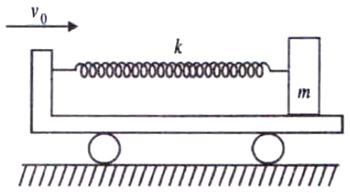Q.
A block of mass is connected rigidly with a smooth wedge (plank) by a light spring of stiffness . If the wedge is moved with constant velocity , then find the work done by the external agent until the maximum compression of the spring.

NTA AbhyasNTA Abhyas 2020Work, Energy and Power
Solution:
